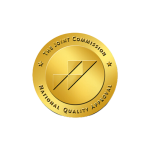What You'll Learn:
- Shedding light on the hidden struggle of addiction within law enforcement.
- Offering insights into the unique challenges faced by officers and their susceptibility to addiction.
- Providing tips on how to support both your own recovery journey and law enforcement personnel in their battle against addiction.
We will delve deeper into the importance of National Law Enforcement Appreciation Day, which falls on January 9th each year. We'll explore how law enforcement personnel are not immune to the challenges of addiction, how substance abuse affects their lives, and how you, as someone seeking addiction treatment, can show your support for them while on your own recovery journey.
Law Enforcement and Addiction
It's common to have a misconception that law enforcement officers are invulnerable to trials of addiction. The truth is, they face unique stressors and pressures in their line of work that can lead to substance abuse issues.
1. High-Stress Work Environments
Law enforcement officers are often regarded as the brave individuals who protect and serve our communities. While their dedication is commendable, it's essential to recognize the significant stressors that come with the territory. Police officers, sheriffs, and other law enforcement professionals often deal with high-stress situations daily. The emotional toll of their work can sometimes push them toward alcohol or drug use as a coping mechanism.
2. Exposure to Traumatic Events
Law enforcement officers witness traumatic events, accidents, and crimes that can leave lasting emotional scars. The emotional weight of their work can strain officers' personal relationships with family and loved ones. Repeated exposure to trauma can lead to PTSD, characterized by symptoms such as flashbacks, nightmares, severe anxiety, and emotional numbing. These experiences may contribute to the development of addiction as they seek ways to numb the pain.
3. Peer Pressure and Stigma
One of the most significant challenges that law enforcement officers facing addiction encounter is the stigma that surrounds this issue within their own ranks. This stigma often acts as a formidable barrier, preventing them from seeking the help and support they desperately need. One of the primary reasons officers hesitate to seek help for addiction is the fear of judgment from their colleagues. In a profession where strength and resilience are highly valued, admitting struggling with addiction can be seen as a sign of weakness. The fear of being stigmatized or ostracized by fellow officers can be paralyzing, preventing individuals from acknowledging their addiction and taking steps toward recovery.
4. Access to Prescription Medications
One of the unique aspects of law enforcement is that officers often have access to prescription medications as part of their duties. While this access can be essential for providing immediate medical care in emergencies, it also comes with its own set of challenges and risks. The same medications that can be used for legitimate medical purposes can also be misused or abused. Officers may be at risk of using prescription drugs inappropriately.
Supporting Officers in Addiction Recovery
Understanding the unique challenges faced by law enforcement officers is essential, but it's equally important to know how you can offer support, both to yourself as a person on the path to recovery and to those who serve and protect our communities:
Advocate for Treatment Options
Encourage your peers in recovery to consider treatment options that are sensitive to the unique needs of law enforcement personnel. Tailored programs that address their experiences and challenges can be more effective. Encourage open conversations about mental health and addiction within law enforcement agencies. Reducing the stigma around seeking help is crucial in supporting officers' well-being.
Participate in Law Enforcement Appreciation Day
Use National Law Enforcement Appreciation Day as an opportunity to show your support. Consider organizing events or initiatives that demonstrate your gratitude for the hard work and dedication of these individuals.
Spread the Word
Share your experiences and knowledge about addiction recovery with others. Education and awareness can go a long way in reducing the prevalence of substance abuse in the law enforcement community. National Law Enforcement Appreciation Day is not just a day to express gratitude but also an occasion to reflect on the challenges faced by those who serve and protect. By understanding their struggles and offering support, we can create a more compassionate and inclusive environment for law enforcement officers battling addiction.
Remember, American Recovery is here to assist you on your journey to recovery, just as we're committed to supporting law enforcement personnel in their battle against addiction. Reach out to us today at 866-484-2502 to take the first step toward a brighter and healthier future.


